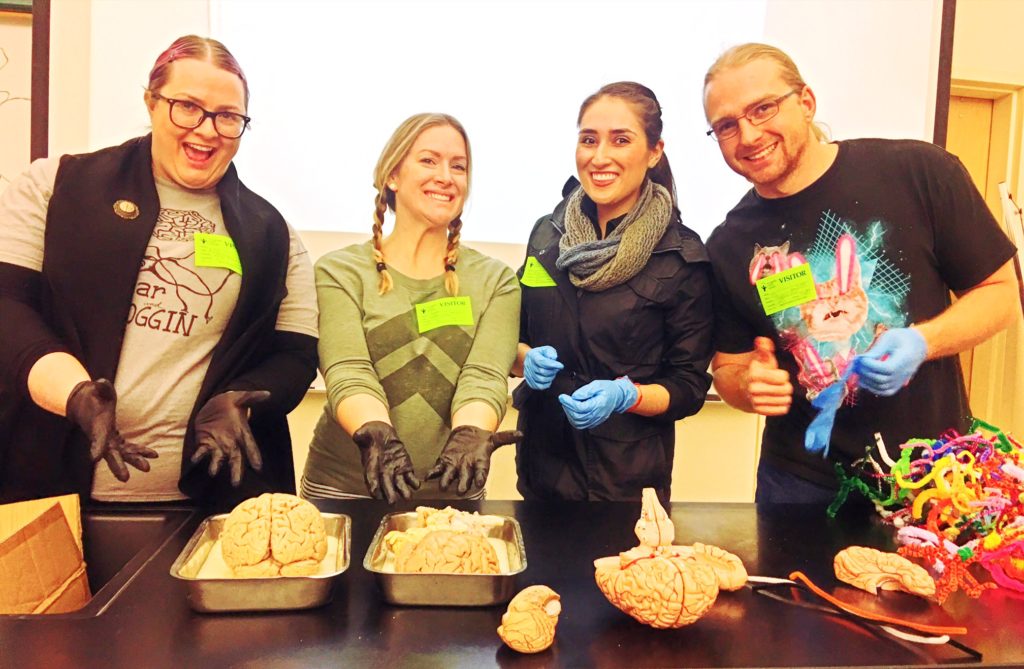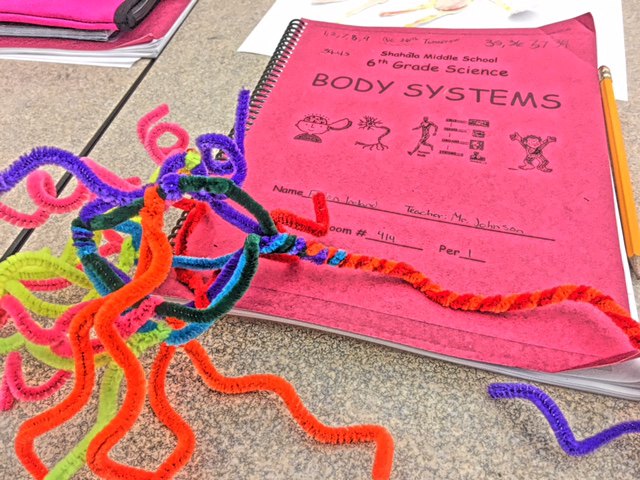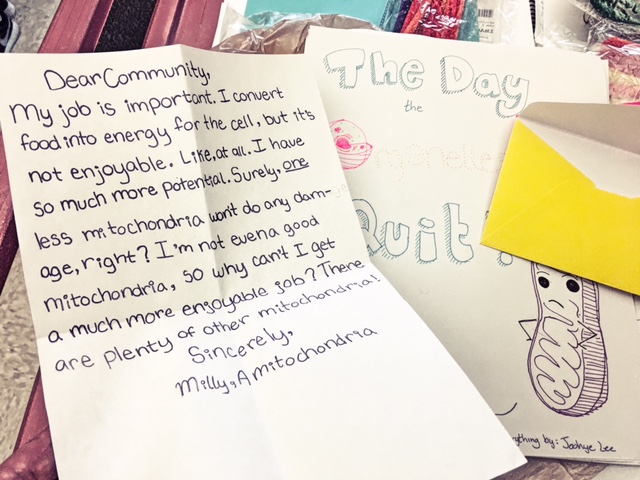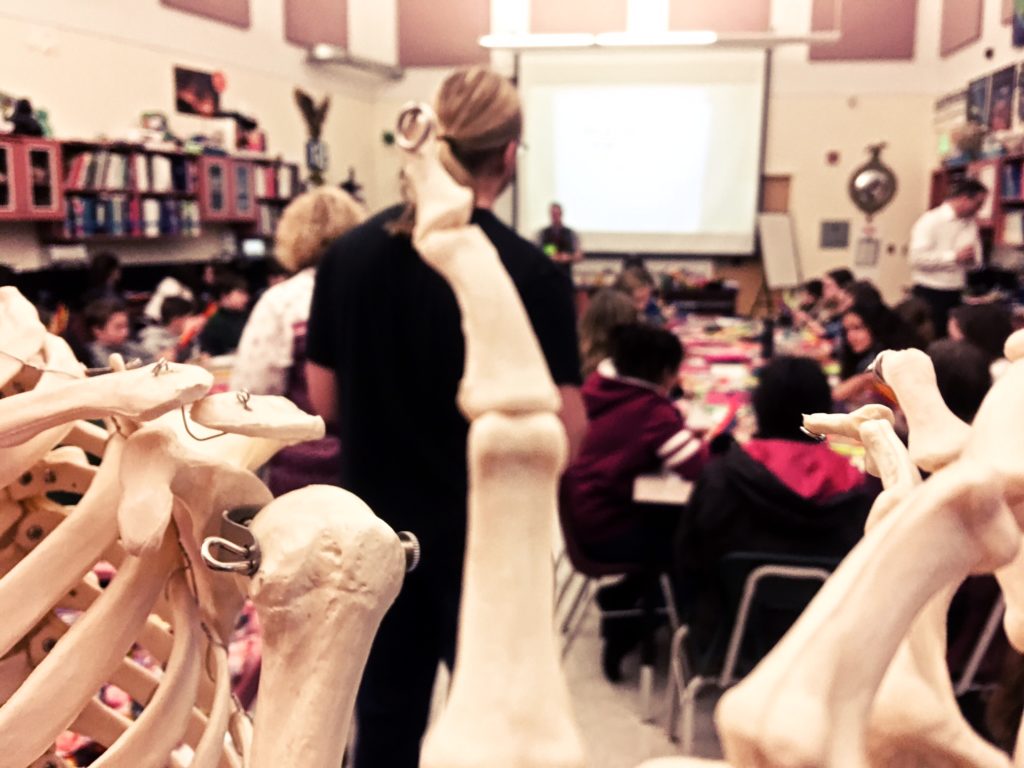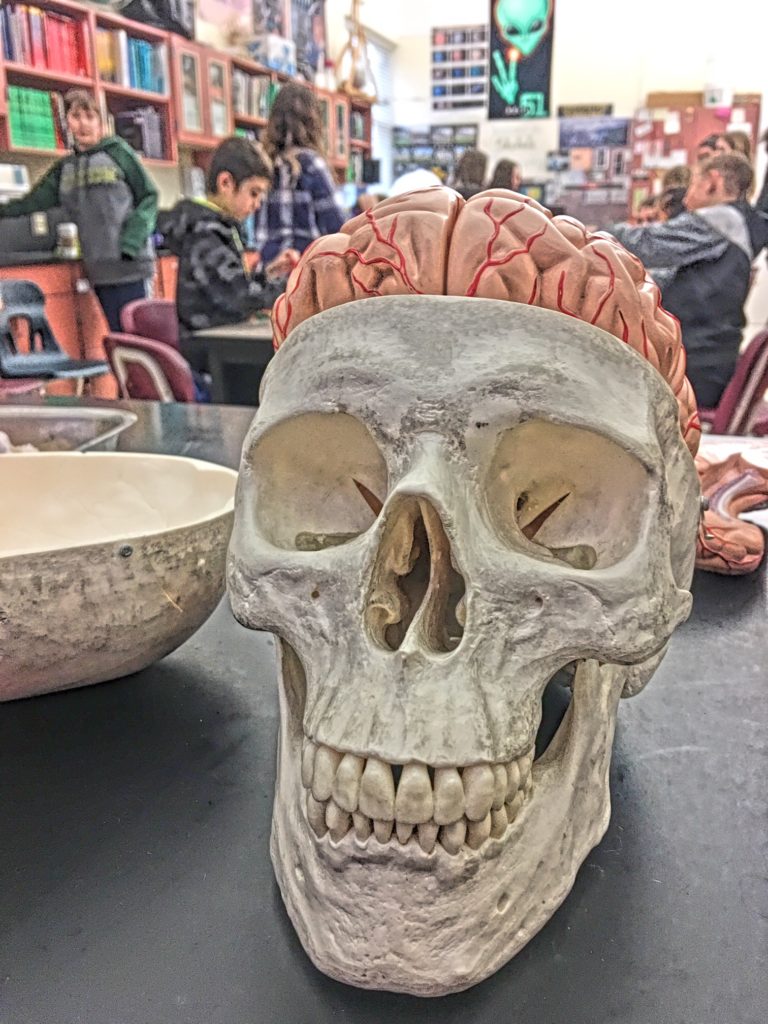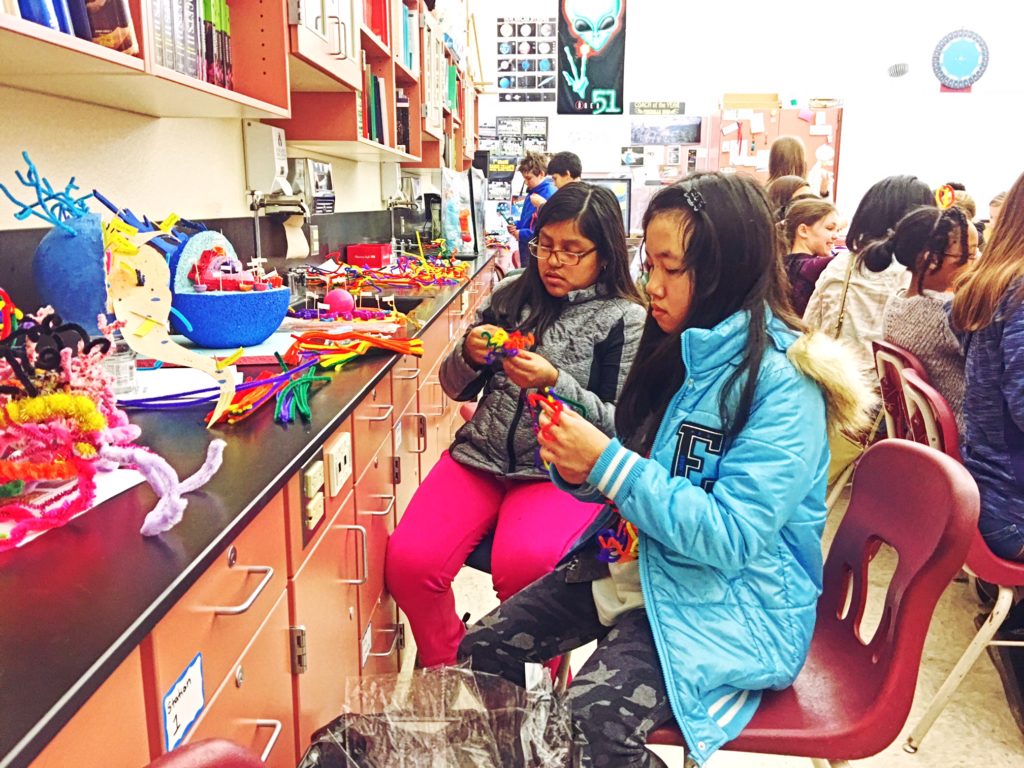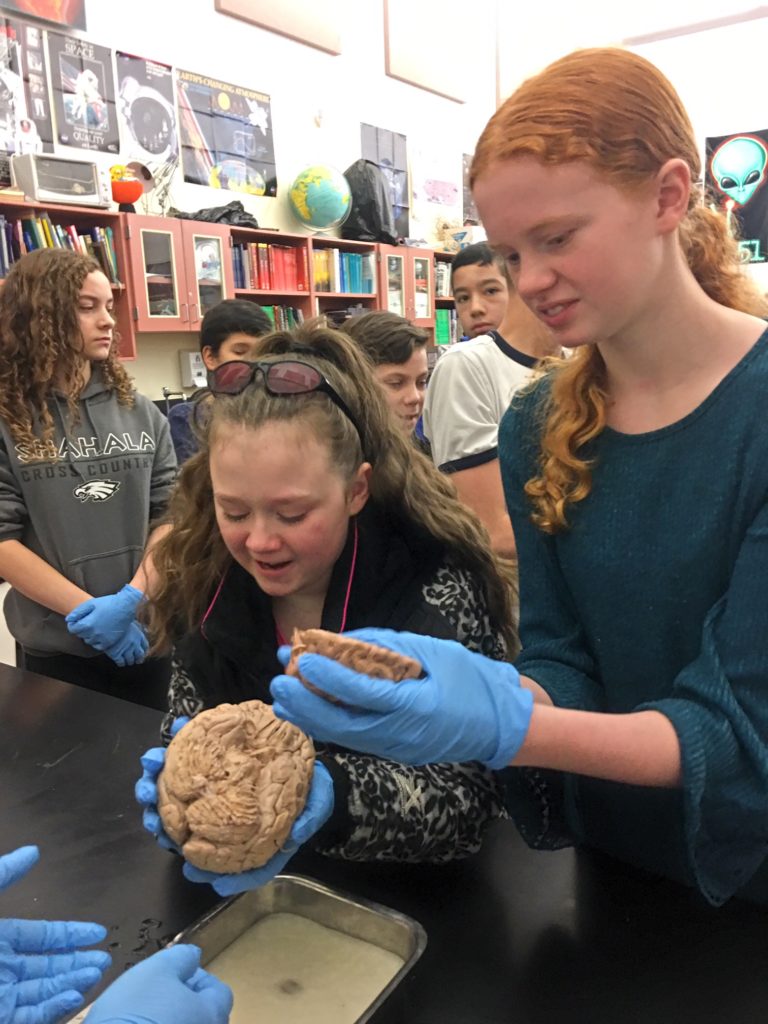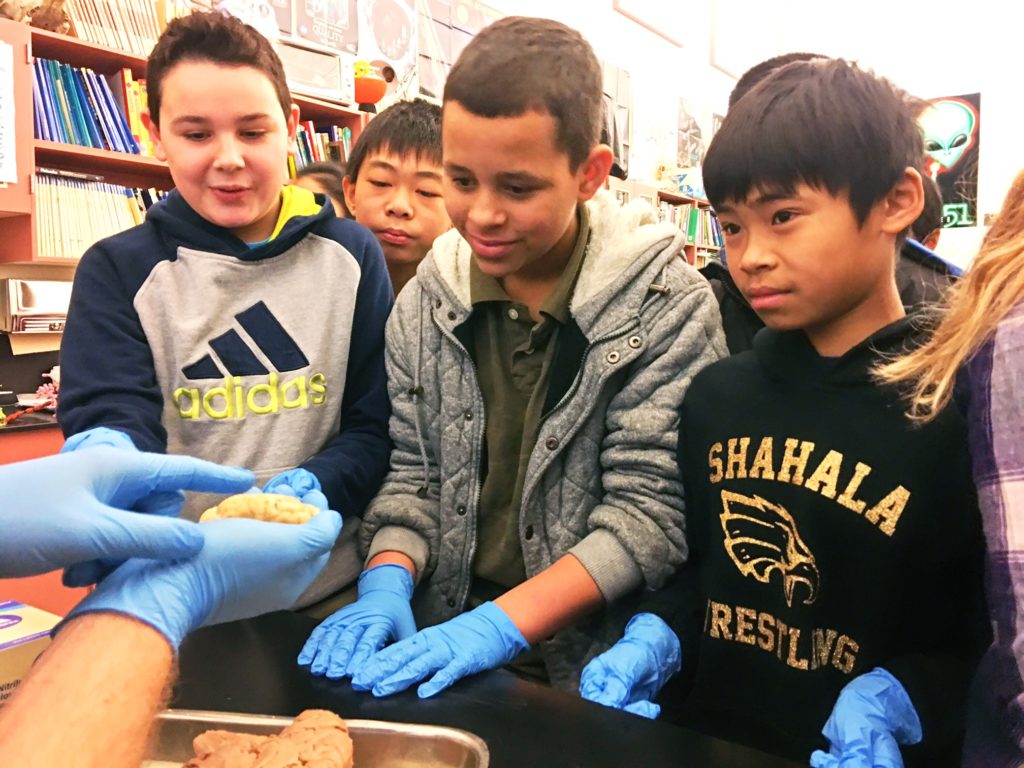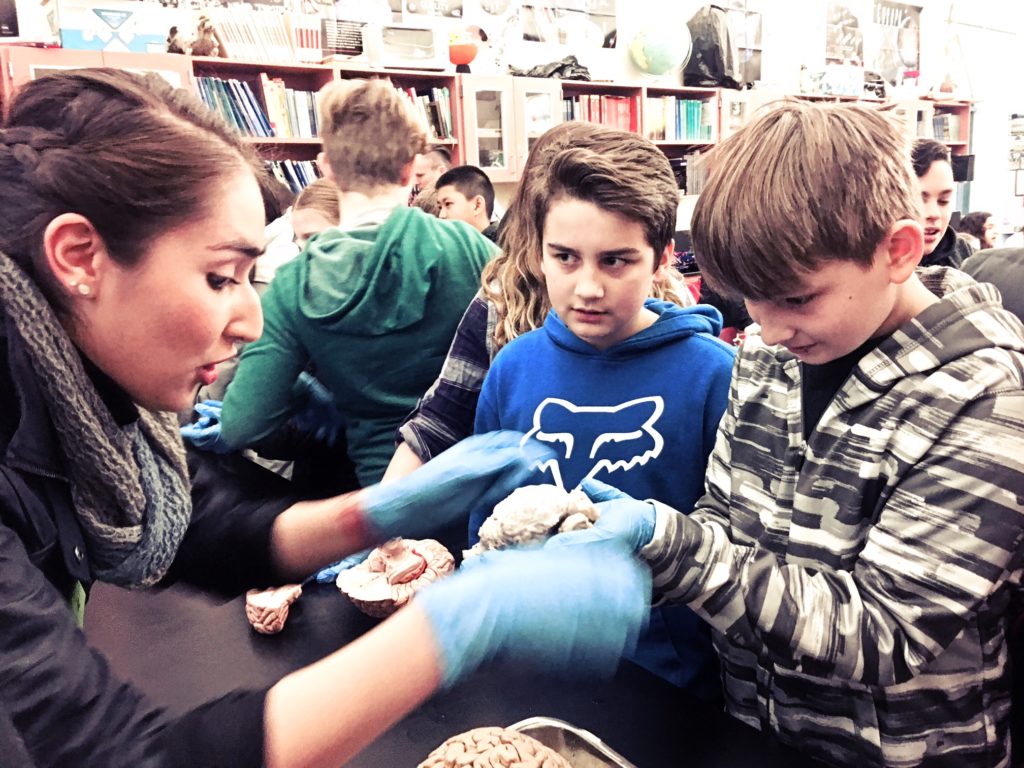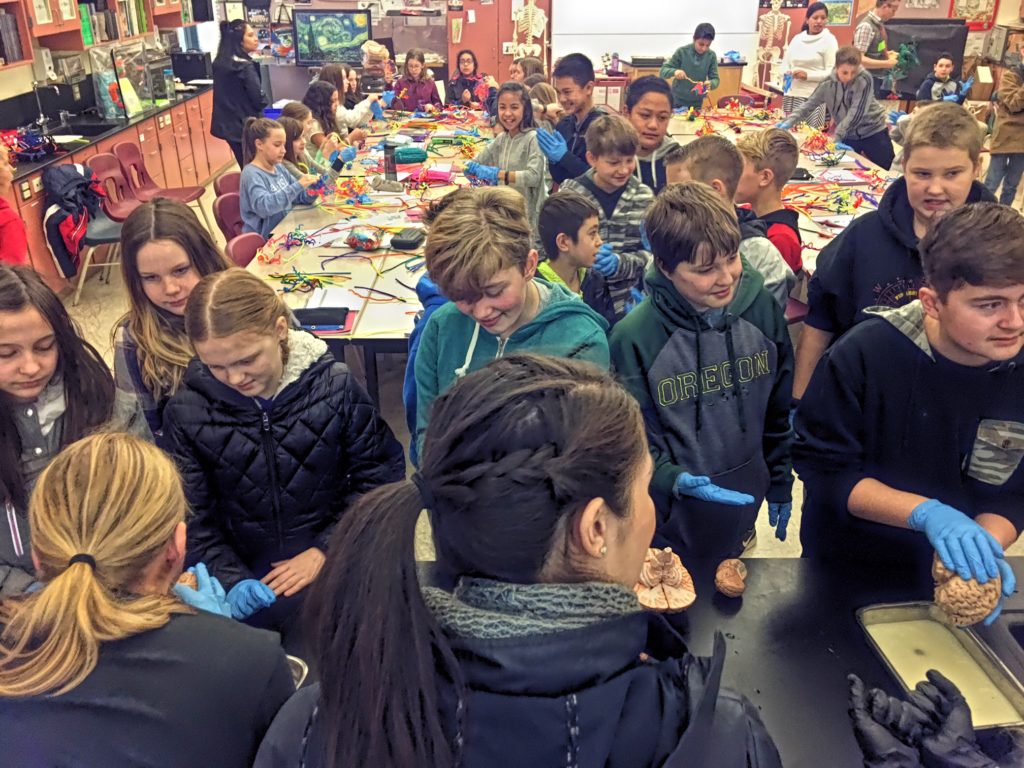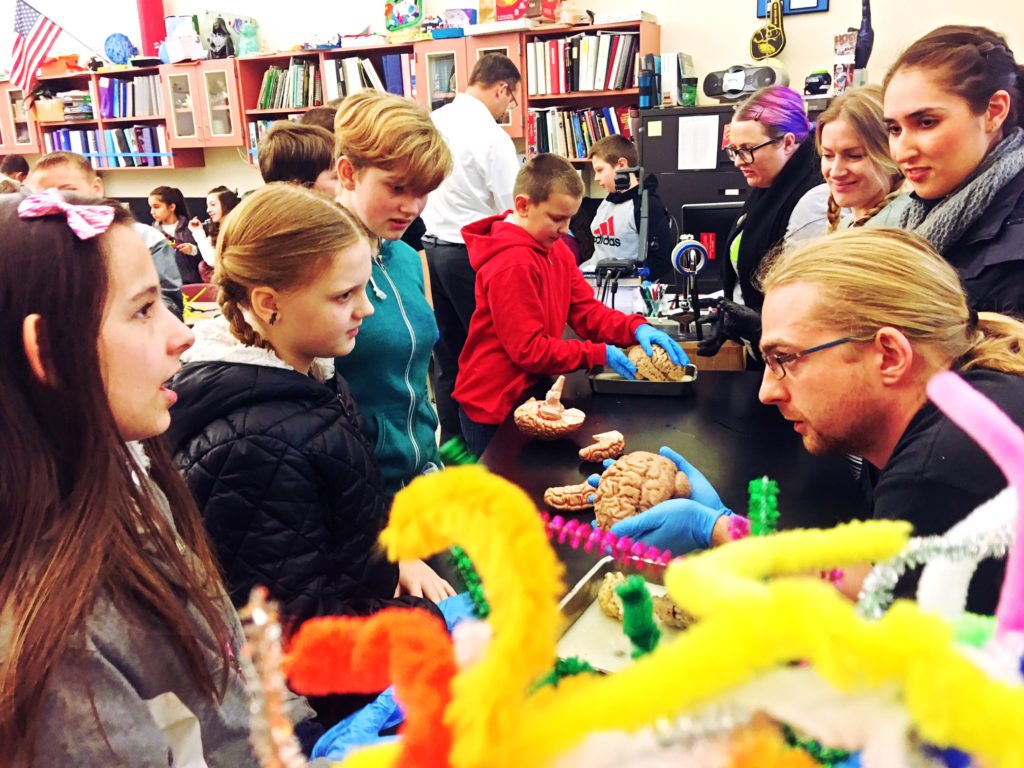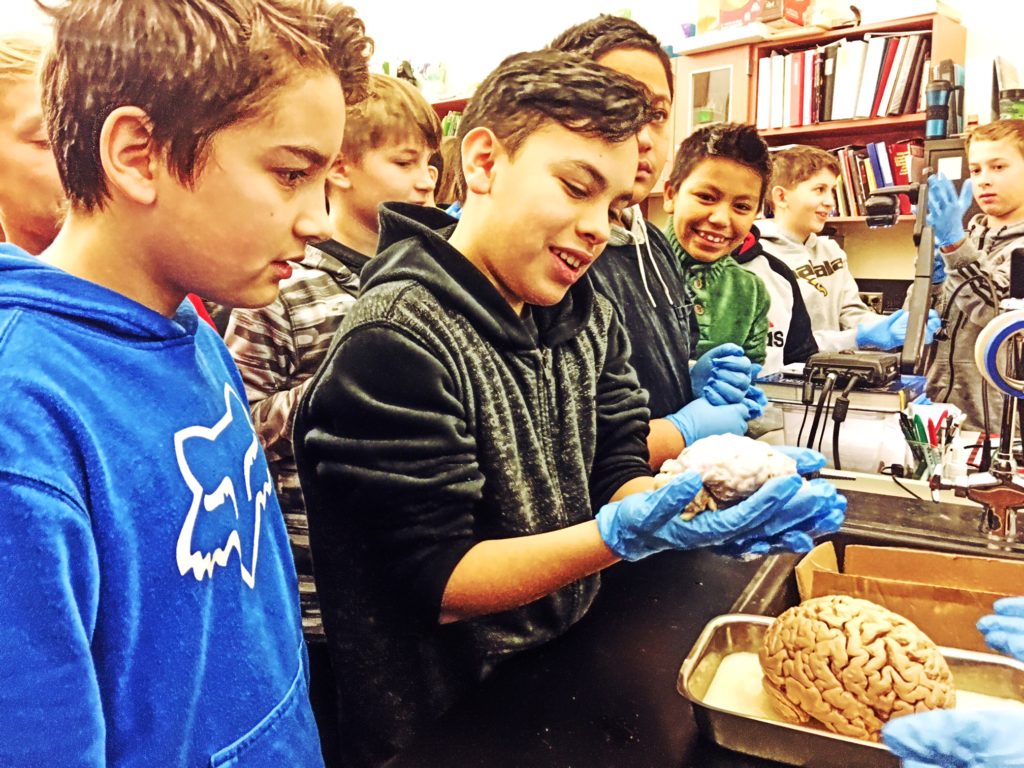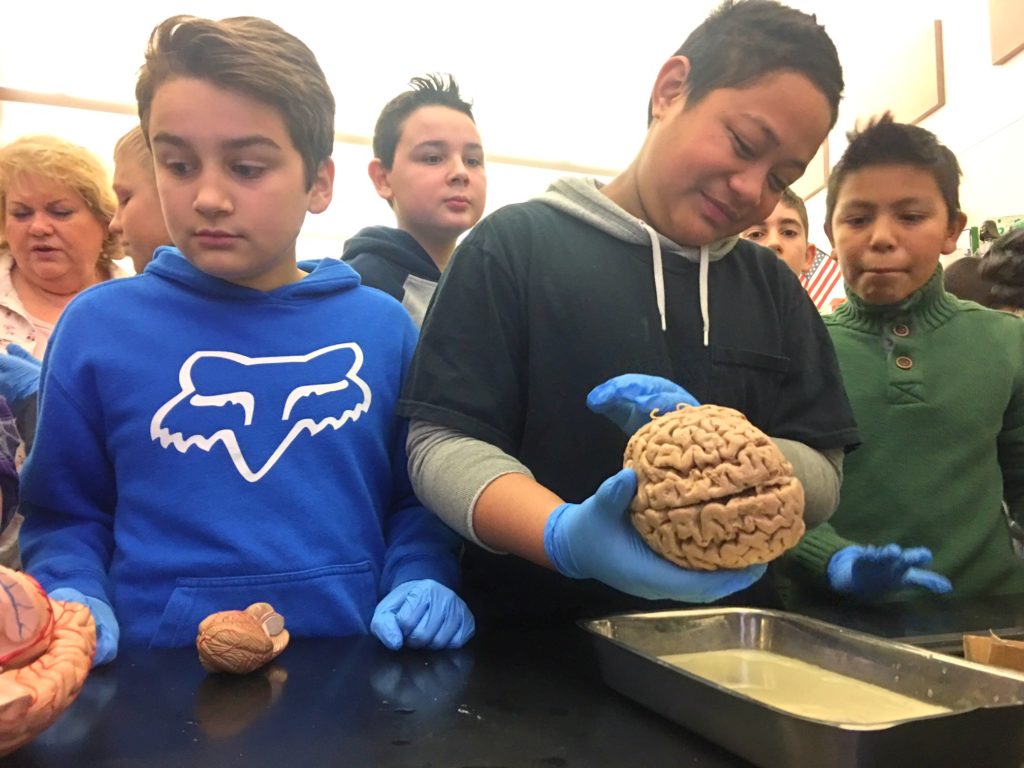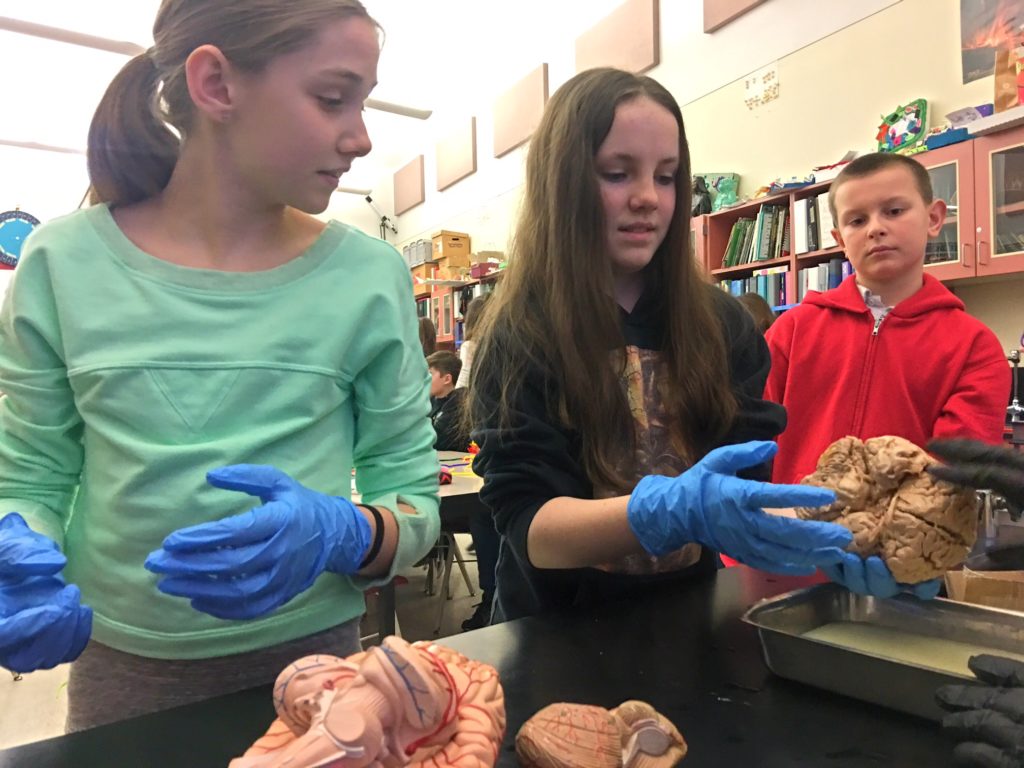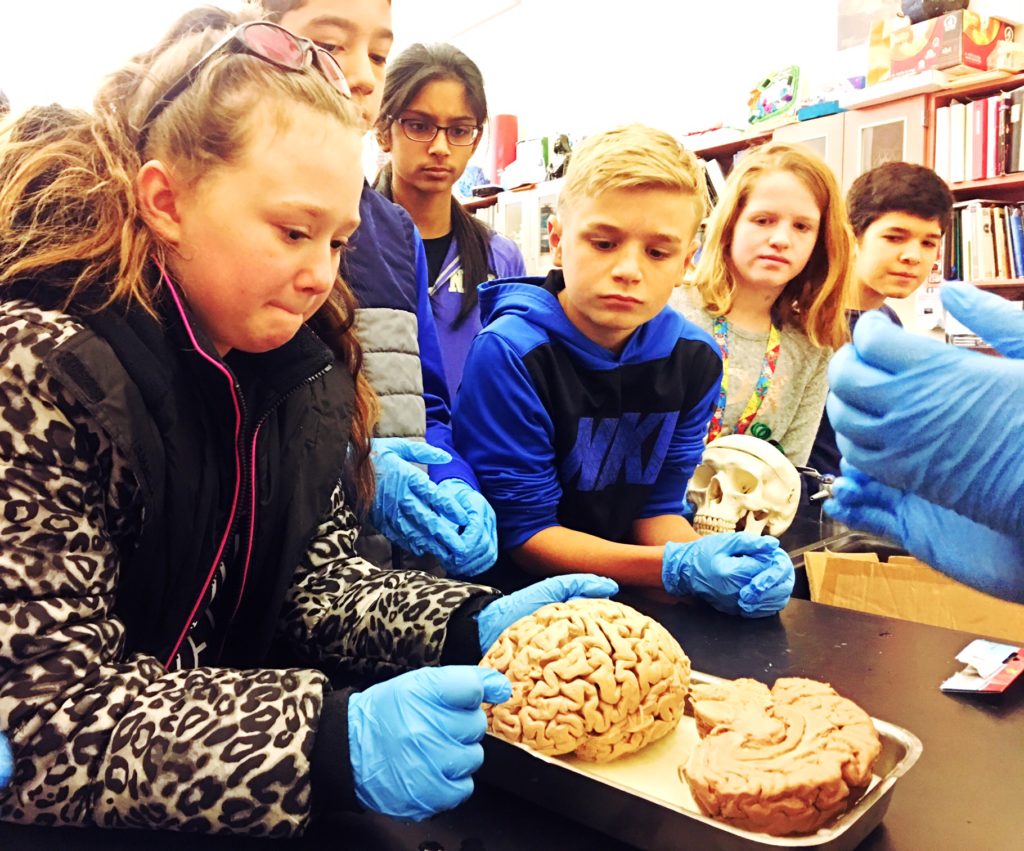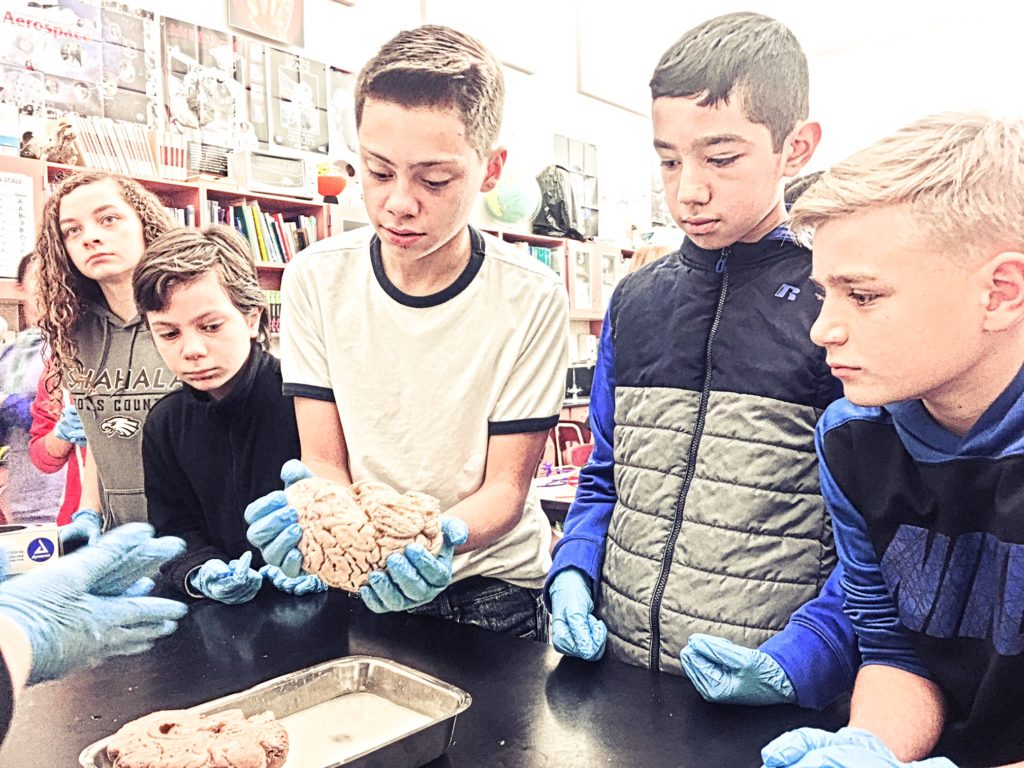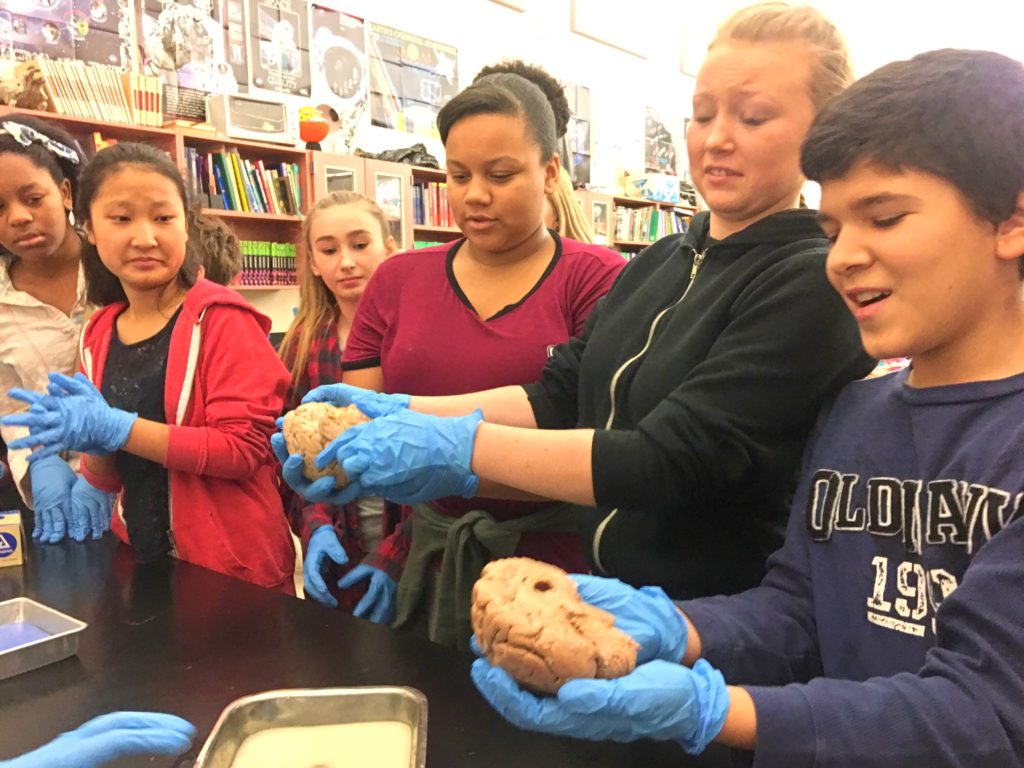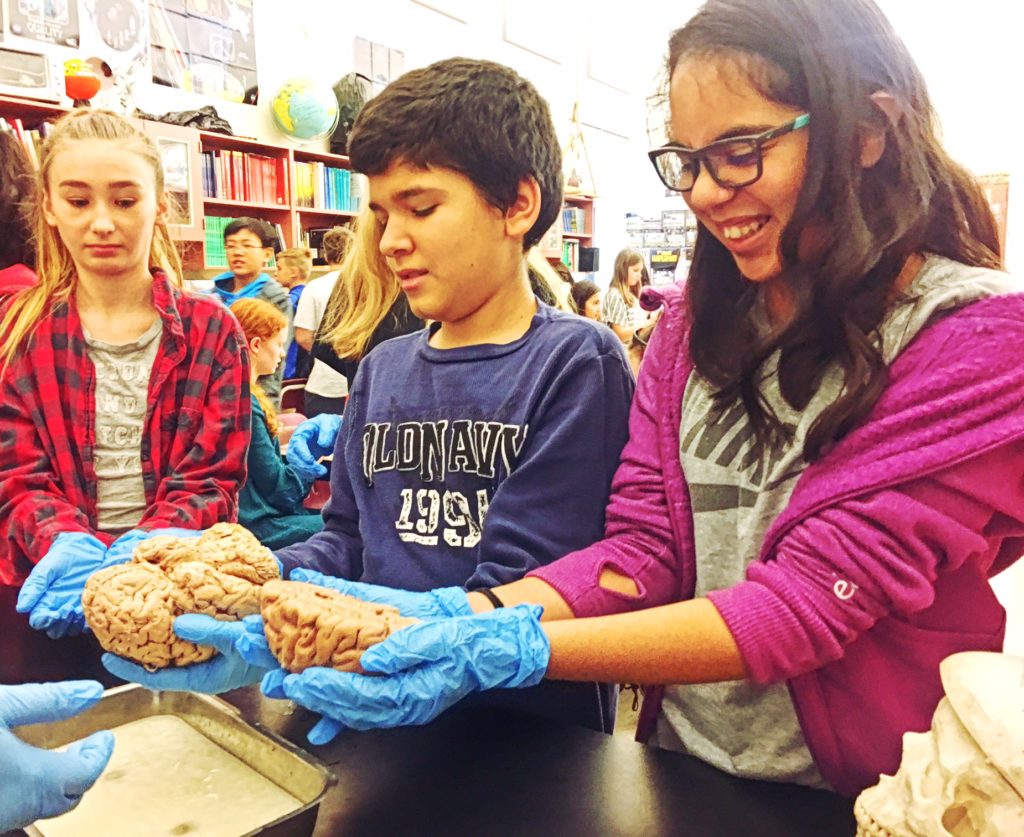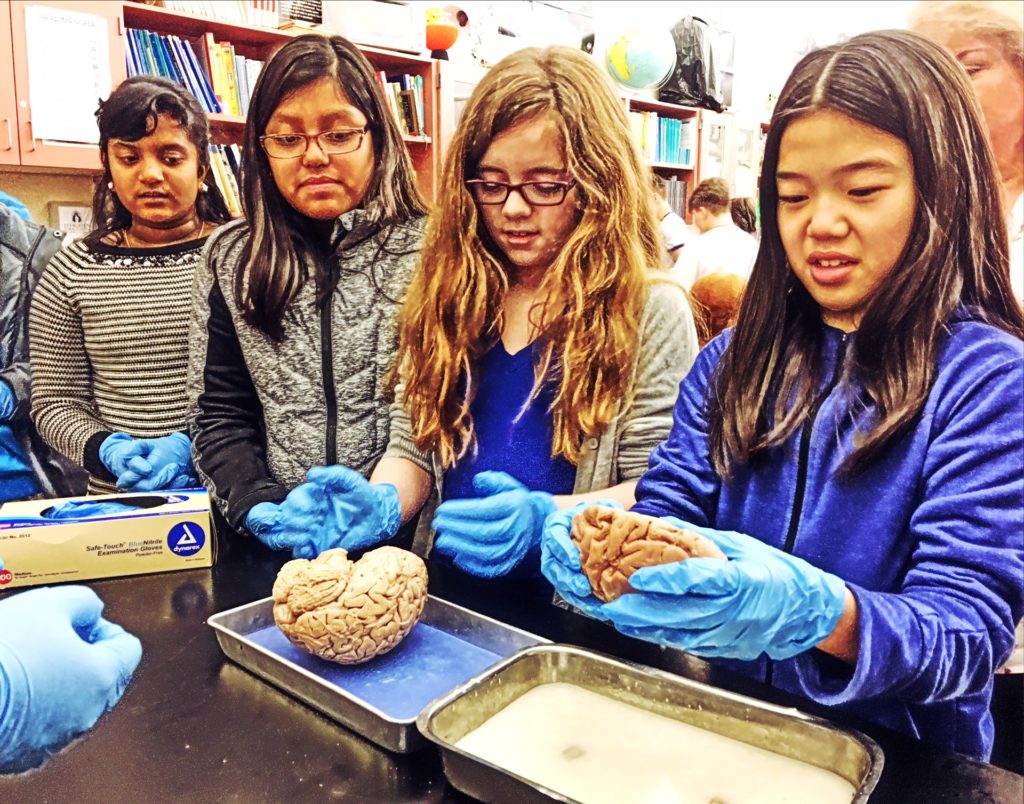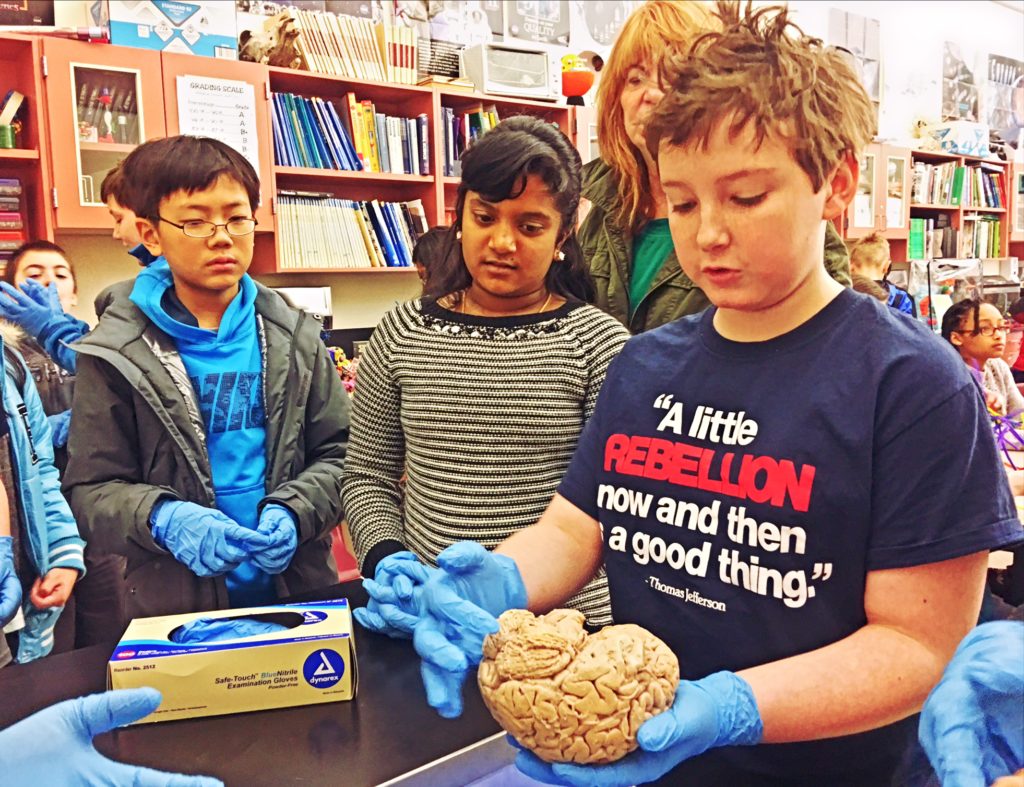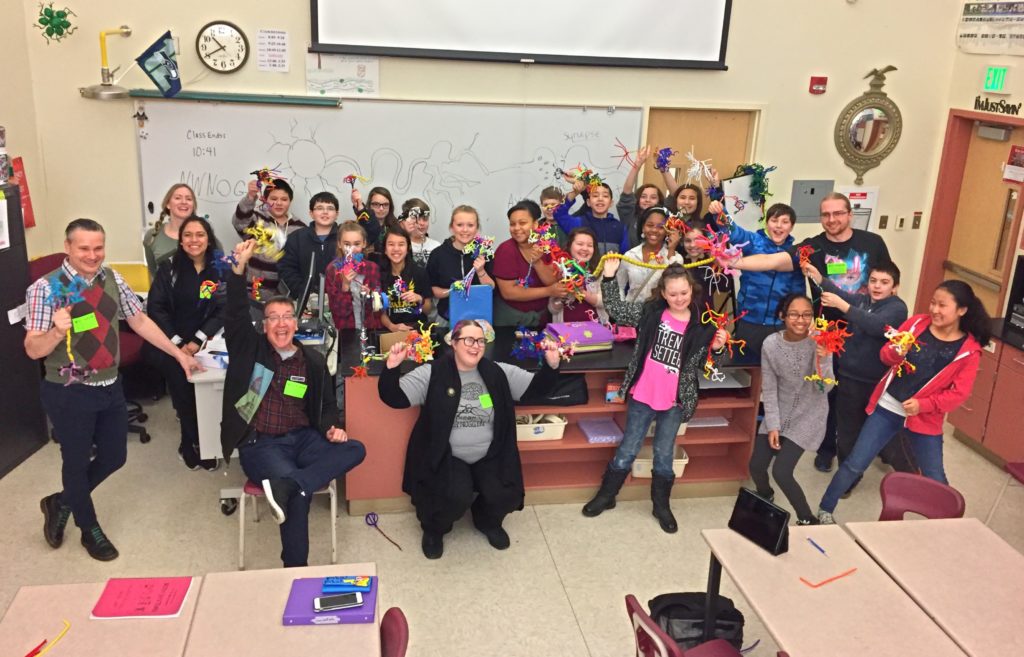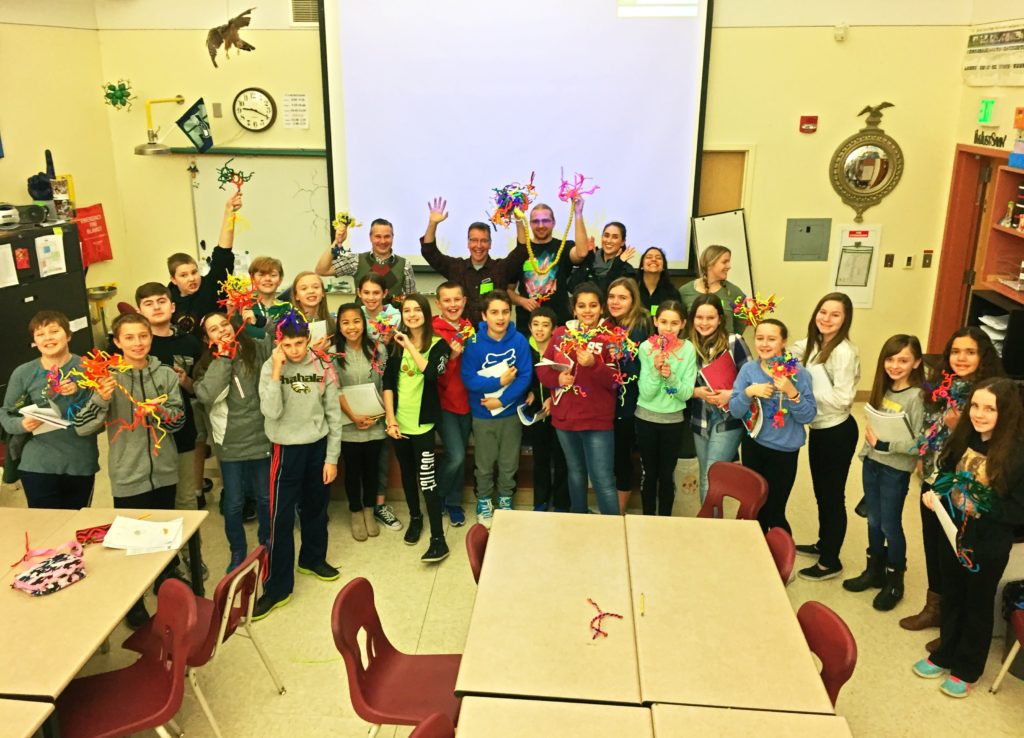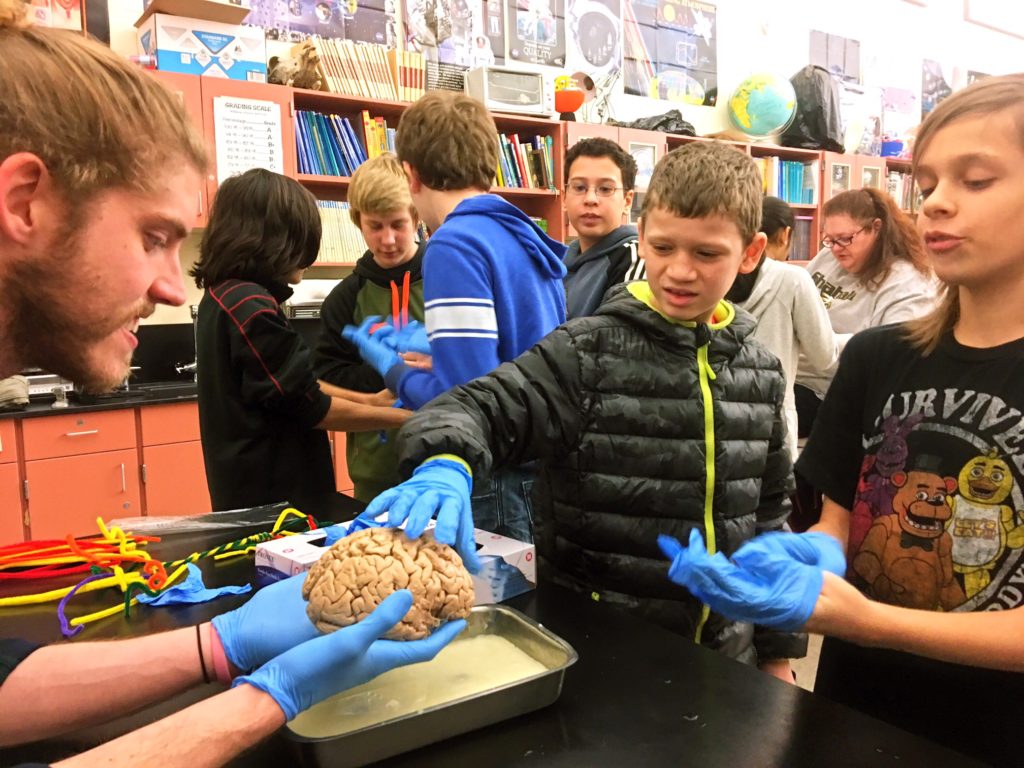Our intrepid Noggin volunteers visited Shahala Middle School in Vancouver’s Evergreen Public School District this morning, to meet with six classes of 6th graders eager to learn about their brains!
We had some seasoned outreach volunteers, including Gaile Parker and Noggin Resource Council member Jessica Patching-Bunch, both recent graduates of the Department of Psychology at Portland State University, and new participants, including Sulema Rodriguez, Jobe Ritchie and Andrea Anaya, all current undergraduates at Portland State…
We are going to return to Shahala later this week with an even larger group of volunteers from PSU, Oregon Health & Science University, and WSU Vancouver..!
We started off early, at 8:05am, and began by marveling at what these hundreds of students already knew!
With guidance from their biology teachers, Keith Johnson and Joyce Selee, they had studied major brain regions and their associated functional roles, and produced some striking, labeled models of neurons, including critical cellular organelles…
One student even wrote and illustrated a short graphic novel, titled “The Day the Organelles Quit,” to explore the essential roles played by the nucleus, the ribosomes, and those cellular furnaces known as mitochondria..!
Students had terrific questions about teenage brain changes, the role of sleep in memory, the influence of drugs on development, and neuron structure and function. We also tackled a few common brain myths, including the idea that our right hemisphere is solely involved in creating art, while the left hemisphere selectively underlies some sort of “logical reasoning” required for scientific research…
There is evidence for hemispheric specialization. Our left hemisphere is more engaged in the detailed, “local” processing of stimuli; for example, the words and syntax of language expressed through speech or sign. Left hemisphere damage often produces significant loss of language comprehension, expression, or both…
EXPLORE MORE: Aphasia Information Page
In contrast, damage to the right hemisphere can also impact language, but more in terms of its emotional content (e.g., the “sing song” quality of speech, or its prosody) and purpose – the “global” story you’re telling, or the overall point of your speech. Patients with damage to the right hemisphere often have “flat” speech, devoid of significant emotion, and may also have trouble getting to the point…
EXPLORE MORE: Hemispheric specialization for global and local processing
EXPLORE MORE: Left Brain, Right Brain: Facts and Fantasies
However, particularized skills and a felt overall goal, or hypothesis are critical for both scientists and artists, who each have stories to tell, and who each develop expertise in local, detail-oriented practices and techniques…
We had great fun talking with these students, and then Jeff Leake introduced our pipe cleaner neuron building project, which our Shahala classrooms tackled with gusto!
And of course, we also brought brains!
Many thanks to Keith, Joyce and the creative, inquisitive students at Shahala! We look forward to returning later this week… 🙂
LEARN MORE ABOUT OUR RETURN TO SHAHALA…
SHAHALA SYNESTHESIA..!




